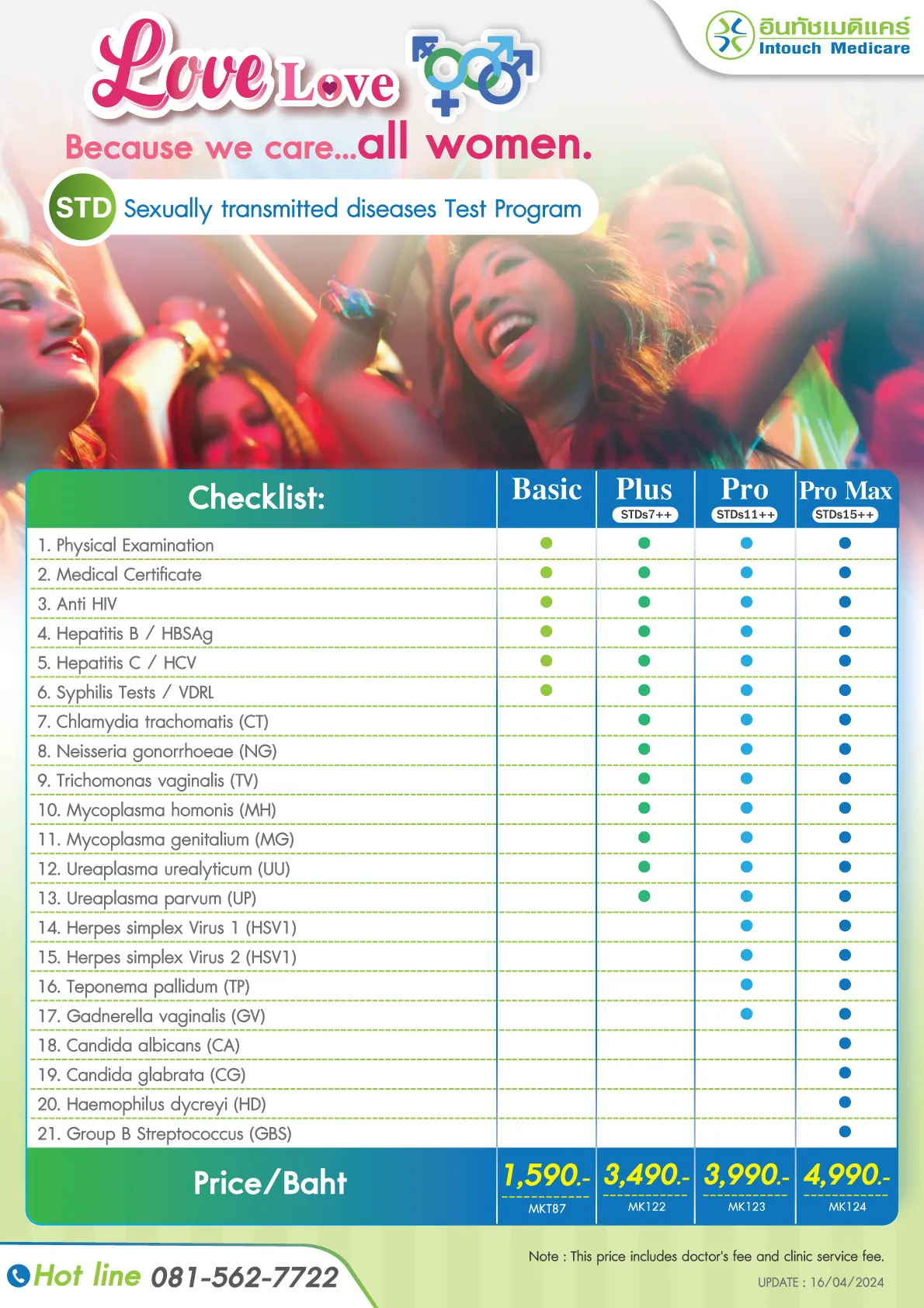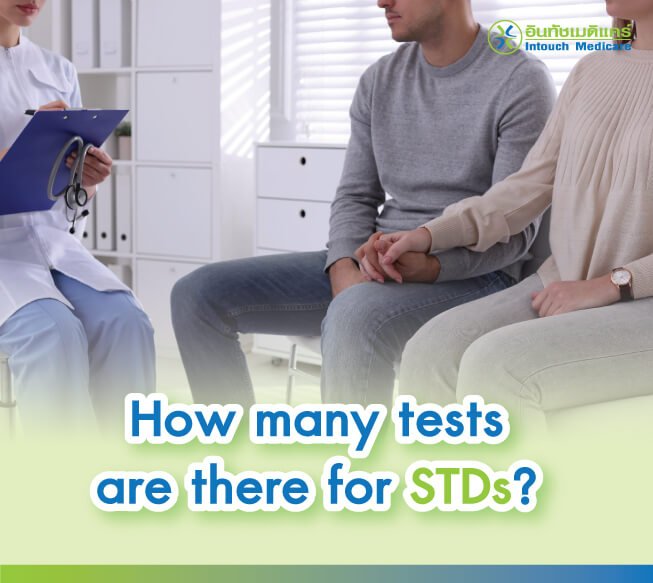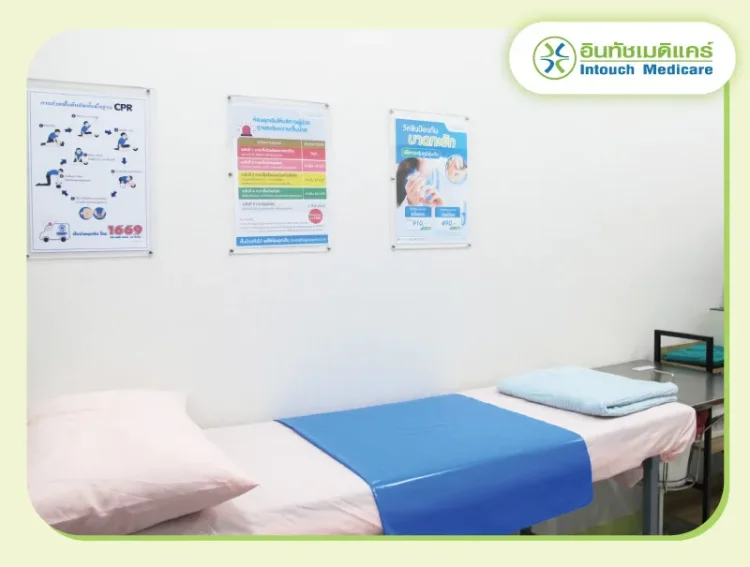STD Test Program (LoveLove)

STD testing price, sexually transmitted disease testing program
Basic Program (Check for sexually transmitted diseases) 1,590 baht
Physical Examination
Medical Certificate
Syphilis Test / VDRL
Anti HIV Test
Hepatitis C / HCV Test
Hepatitis B / HBSAg Test
Plus program (STDs7) (Check for sexually transmitted diseases) 3,490 baht
Physical Examination
Medical Certificate
Syphilis Test / VDRL
Anti HIV Test
Hepatitis B / HBSAg Test
Hepatitis C / HCV Test
Chlamydia trachomatis (CT)
Neisseria gonorrhoeae (NG)
Trichomonas vaginalis (TV)
Mycoplasma homonis (MH)
Mycoplasma genitalium (MG)
Ureaplasma urealyticum (UU)
Ureaplasma parvum (UP)
Pro program (STDs11) (Check for sexually transmitted diseases) 3,990 baht
Physical Examination
Medical Certificate
Syphilis Test / VDRL
Anti HIV Test
Hepatitis B / HBSAg Test
Hepatitis C / HCV Test
Chlamydia trachomatis (CT)
Neisseria gonorrhoeae (NG)
Trichomonas vaginalis (TV)
Mycoplasma homonis (MH)
Mycoplasma genitalium (MG)
Ureaplasma urealyticum (UU)
Ureaplasma parvum (UP)
Herpes simplex Virus 1 (HSV1)
Herpes simplex Virus 2 (HSV1)
Teponema pallidum (TP)
Gadnerella vaginalis (GV)
Pro Max program (STDs15) (Check for sexually transmitted diseases) 3,990 baht
Physical Examination
Medical Certificate
Syphilis Tests / VDRL
Anti HIV Test
Hepatitis B / HBSAg Test
Hepatitis C / HCV Test
Chlamydia trachomatis (CT)
Neisseria gonorrhoeae (NG)
Trichomonas vaginalis (TV)
Mycoplasma homonis (MH)
Mycoplasma genitalium (MG)
Ureaplasma urealyticum (UU)
Ureaplasma parvum (UP)
Herpes simplex Virus 1 (HSV1)
Herpes simplex Virus 2 (HSV1)
Teponema pallidum (TP)
Gadnerella vaginalis (GV)
Candida albicans (CA)
Candida glabrata (CG)
Haemophilus dycreyi (HD)
Group B Streptococcus (GBS)
STDs, or sexually transmitted diseases, are a highly important matter that most people tend to ignore. If we don't protect it first, it could be a problem for us later.
Intouch Medicare would like to invite you to take our STD Test to ensure your health at a reasonable price. You will be comfortable in your relationship. "Don't let the relationship get in trouble, please do a physical check-up before starting a relationship.



